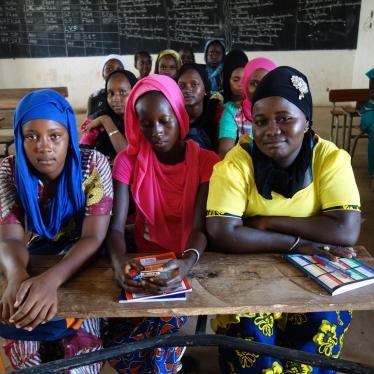Human Rights Watch welcomes the Commission of Inquiry’s interim assessment of current human rights conditions in Eritrea. Its findings show that it is essential for Eritrea to remain on the Human Rights Council’s agenda for the foreseeable future and for the mandate of the Special Rapporteur on Eritrea to be continued.
We regret that the Eritrean government has so far refused to provide access to the Commission. It is also telling. It suggests that the government fears the scrutiny of its human rights record. In light of the government’s unwillingness to cooperate, the Commission has necessarily turned to recent victims of Eritrean human rights abuses, the men, women, and unaccompanied children who have fled the country in recent years. They are the best available witnesses about current practices.
The Eritrean government asserts that the human rights situation in the country is improving, but there is no credible evidence to support such a conclusion.
Relevant benchmarks for progress on Eritrea’s human rights record include: state commitment to respect its international human rights obligations, including cooperation with international mechanisms such as the Commission and Special Rapporteur; the release of prisoners detained on political grounds, including journalists and government officials jailed without trial since 2001, many of whom remain unaccounted for; the lifting of restrictions on independent media, non-governmental organizations, and “unrecognized” religions; an end to indefinite military service; and adoption of the optional protocol to the Convention on Torture. There is no indication of progress on any of these points.
The rumor that national service conscripts who have served longer than the statutorily-permissible 18 months have been demobilized has not been confirmed. On the contrary, even Eritreans who have aged out of national service – sixty- and seventy-year olds – now must provide uncompensated service in a militia several times a week.
There is still a window for Eritrea to change course and support the Commission’s work. We urge all governments, particularly nearby African countries hosting Eritrean refugees such as Uganda, Kenya, and Sudan, as well as United Nations agencies, to support and cooperate with the Commission staff. We urge the Commission to recommend accountability mechanisms for the abuses it has uncovered.
Finally, we urge host countries for Eritrean refugees - particularly Ethiopia, Israel, Libya and Sudan - to fully assist and protect Eritreans in line with their international obligations. Absent such protection, Eritreans will continue to travel to the EU, and face the risk of falling into the hands of abusive smugglers and the dangerous boat journey across the Mediterranean. We call on EU member states to ensure Eritreans continue to have full access to fair and efficient asylum procedures on EU territory and to increase search-and-rescue operations at sea to help prevent loss of life.





